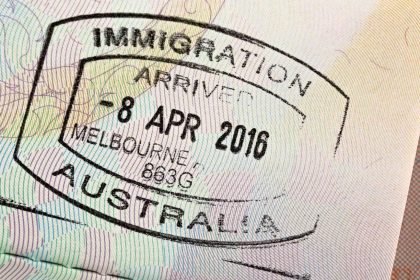The world has changed radically thanks to the Covid-19 pandemic. Nowhere was this change more evident than in the tourism industry and the workforce. Economic losses in countries dependent on tourism increased due to travel restrictions and lack of workforce in offices and organizations. Until employers allowed their workforce to work outside the office. These two needs, i.e. tourist destinations seeking to attract tourists and the workforce seeking to relax in their home workplaces, were both met by countries offering digital telecommuting visas. In this article, we will examine the necessary information about the digital nomad visa.

Digital Nomad Visa
The Digital Nomad Visa around the world opens many doors to new opportunities for living abroad and long-term travel while having a steady income. The widespread implementation of the Digital Nomad Visa program in recent days is perhaps one of the most important new concepts in the world of travel and travel for anyone who has the ability and flexibility to work remotely and the desire to discover a country, a culture or a It is a new lifestyle. Some of the privileges and benefits of Digital Nomad Visa are:
- The Digital Nomad Visa offers several benefits, including a longer length of stay and easier, faster and cheaper application processes compared to other visas.
- Currently, more than 50 countries offer digital telecommuting visas. Of course, new options for these visas are constantly being launched, making it easier than ever to find the right place to work remotely.
- Eligible requirements and criteria for obtaining Digital Nomad Visa or digital nomadic visa generally include appropriate age, providing identity documents, having a minimum income and proof of employment, having a residence permit and health insurance. However, specific conditions and requirements vary from country to country.
Important points about the Digital Nomad Visa
There are many things about digital telecommuters and digital telecommuter visas, one of which is that the Digital Nomad Visa has many more benefits than a tourist visa and allows visa holders to stay in the country for a long period of time. . In addition, obtaining digital remote work visas is much easier, faster and cheaper than residence visas or other long-term visas (for those who qualify). These visas can also be a great stepping stone for applicants who are thinking of preparing for permanent immigration abroad and obtaining residency and citizenship of the country in question. If you want to know more about digital telecommuting visa, here are 10 important tips for you.
10. What is Digital Nomad Visa?
The Digital Nomad Visa is a type of visa specifically designed for international applicants as skilled remote workers, allowing them to work abroad online. This new visa scheme and program was implemented as a result of the COVID-19 pandemic, when the world saw a massive shift from office-based work to online work and the subsequent flexibility to change physical locations while maintaining stable employment. A digital telecommuter is an applicant who has a specific lifestyle and uses technology to work remotely from outside their home country. A digital telecommuter visa is a document or program that gives an applicant the legal right to work remotely while living outside their country of permanent residence.
The Digital Nomad Visa or Digital Nomad Visa provides the applicant with legal permission to reside, live and work in a specific country for a long period of time, but with the condition that the employer is located in another country or the applicant is a self-employed visa holder. And it does not work in the local office.
The Digital Nomad Visa is very different from regular work visas and usually has specific conditions and requirements for obtaining it. An immigration lawyer in immigration institutions is well aware of the conditions for obtaining a digital remote work visa and can provide useful guidance in this regard.
9. Do all countries offer the Digital Nomad Visa?
Currently, not all countries in the world offer the Digital Nomad Visa option. The number of countries offering digital nomadic visas is currently 50 countries and the list is still growing. In fact, there are so many countries that continuously launch digital telecommuting visa versions of this digital nomad visa that it is difficult to remember them all on a daily basis. For example, some of the latest countries to announce new digital telecommuter visa options in 2023 include:
Imagine digitally telecommuting with your toes in the sand while overlooking a spectacular city skyline. Or when you want to grab your laptop and hit the road, you’ll have no problem finding ideal countries for digital telecommuting.
8. What are the conditions for obtaining a Digital Nomad Visa?
While the specific eligibility requirements and criteria for receiving a digital telecommuter visa or digital nomad visa vary significantly from country to country, there are some general conditions and requirements that are generally applicable in all cases:
- Eligible age: Applicants must be at least 18 years old and sometimes the maximum age to receive digital remote work visas.
- Identification documents: Applicants must have a valid passport with at least 6 months validity from the date of remote work visa application.
- Minimum income and proof of employment: Applicants must prove by providing bank statements that they have a certain minimum monthly income (it varies from country to country). Applicants must show the duration of employment by the visa-issuing company by submitting an employment certificate.
- Residency requirements: Digital telecommuter visas are only available for certain nationalities.
- Health Insurance: In most cases, the applicant must prove that he/she has a private health insurance/travel insurance for the duration of the telework visa.
7. How much does Digital Nomad Visa cost?
The costs of obtaining a Digital Nomad Visa are also different in each country, as well as the conditions and requirements for obtaining it. There is generally a fee for the visa itself, which can range from under $100 to several $1,000s. However, some countries that have recently implemented new digital telecommuter visa programs and are trying to attract applicants may lower the visa application fee slightly. In addition, the cost of obtaining a companion visa will be higher for digital remote workers who want to bring their spouse or children with them in that country.
Those looking for a cheap Digital Nomad Visa may also want to consider the income requirements. In other words, in order to receive a digital remote work visa, applicants must prove that they have a fixed monthly income and salary or savings. The following countries have a monthly income and salary threshold of about US$1,500 or less. Some of the best cities in South America offer the Digital Nomad Visa with favorable economic options. Applicants must have a minimum fixed income or savings to receive a digital remote work visa in the following countries:
- Brazil: $500 per month or $18,000 in savings
- Colombia: USD 900 per month
- Ecuador: 350 USD per month
- Uruguay: No minimum income requirement and one of the easiest and most lenient countries to get a digital nomad visa
6. Does Digital Nomad Visa allow working locally?
While the Digital Nomad Visa provides applicants with a legal work permit, the condition is that the company is based abroad for remote work. Applicants must comply with all the rules and regulations of the digital telecommuter visa, as violation of any of the rules and conditions of work can lead to visa cancellation and deportation.
However, in some cases, there are routes to local legal employment. For example, in Mexico, the Digital Nomad Visa is actually a temporary residency program. The applicant is not authorized to work in Mexico with this visa, but work authorization in the country can be obtained through a separate application process for some applicants with temporary resident visas.
5. How long is the Digital Nomad Visa valid for?
The validity of Digital Nomad Visa varies from 6 months to several years. Although some digital telecommuting visas may only be issued for a period of 3 to 6 months, the good news is that there is almost always an option to extend this work visa once or even multiple times. Applicants can renew these visas completely online and do not need to leave the country to do this. Some of the countries that offer the Digital Nomad Visa with the longest stay are:
- Costa Rica: 2-year visa with the possibility of extension as long as the applicant is eligible.
- Germany: allows extension up to 3 years.
- Mexico: This visa is issued for one year but can be extended up to 4 years.
- Greece: one-year visa that can be extended twice.
- Portugal: issued for one year but can be extended up to 5 years with the possibility of citizenship if the applicant meets the necessary conditions and all the criteria mentioned.
4. Does Digital Nomad Visa have travel restrictions?
The Digital Nomad Visa is a multiple-entry visa, which means that applicants with this visa can leave and re-enter the country as often as they want during the validity of the visa. In addition, every time the applicant enters, he does not need to get a new visa such as a tourist visa.
Therefore, applicants who use visas based on temporary residence for living and working, such as the digital telecommuter visa, may have to meet certain residency requirements if they intend to extend their visa. Here are some examples of specific residency requirements for the digital telecommuter visa:
- Portugal: Digital telecommuters applying for Portugal’s D7 visa option must physically reside in Portugal for 66% of the visa’s duration. Since the Portugal digital telecommuter visa is valid for 2 years, this is approximately 16 months out of 24 months.
- Mexico: Digital telecommuter visa with temporary stay can be renewed, but applicants with this visa must be present in Mexico on the expiration date and for renewal.
3. Are there any tax obligations with the Digital Nomad Visa?
In general, applicants with a digital telecommuter visa or digital nomad visa must pay taxes in their country of permanent residence, but there are many variables and nuances in each country’s specific tax laws. US tax regulations are very complex, so tax obligations for US citizens living and working abroad can be very confusing.
The United States is one of the few countries that focuses on a citizen-based tax system. In other words, US citizens are responsible for paying federal taxes regardless of where they live (although they may not actually have to pay anything.)
For countries that focus on a residence-based tax system, which is the most common type of tax system in most of the world, one of the taxes is due after 183 days of residence in the resident country. However, on a country-by-country basis, digital telecommuter visa applicants may be exempt from paying taxes because their source of income is foreign. Accordingly, before receiving a digital telecommuting visa, it is very important to check the tax situation and other characteristics of the host country.
2. How to choose the right country to receive a Digital Nomad Visa?
While some conditions and requirements for choosing the right country may be clear from the beginning and non-negotiable, such as the geographical location of that country and having the necessary conditions and requirements to receive a digital remote work visa, but there are other factors that should be considered in When deciding which country to telecommute and as a remote workforce consider:
- Cultural assimilation: mastery of the local language, presence in the digital telecommuting community, previous travel experience and familiarity with the target country
- Internet speed: This feature is easily overlooked by US applicants who are used to having fast and reliable Wi-Fi.
- Cost of living: In addition to doing thorough research on housing, food, and general daily expenses, it is important to pay attention to the exchange rate between your currency and the country you are living in as a digital telecommuter. They should be ready for it. Any possible volatility is significant, for example, in Mexico, digital telecommuters have been forced to devalue the dollar against the peso by 25% in a matter of months.
1. Which countries offer Digital Nomad Visa options?
The future and outlook of the Digital Nomad Visa is bright and more countries are expected to announce new options for this remote work visa every day as its economic benefits become apparent. Over time, digital telecommuting visa options are becoming more inviting and inclusive to attract a wide range of businesses in digital telecommuting fields (and not just the ultra-wealthy as was common in the past).
In fact, one of the best and most accessible digital telecommuter visa programs out there is also one of the newest (launching in 2023): the Uruguay Digital Telecommuter Visa Program. In order to obtain a digital remote work visa for Uruguay, it is not necessary to provide proof of having a fixed monthly income and the application process is very simple. In addition, Uruguay is considered the safest country in South America. Also, the cost of living in this country is low, while the quality of life is high and the culture of this country is friendly, passionate and accepting of immigrants.
Conclusion
The information provided in this article about the digital telecommuter visa is only focused on the remote workforce and not applicants who want to study abroad. Although the term telecommuting has become increasingly popular, it is not entirely synonymous with digital telecommuting. All digital telecommuters are, by necessity, remote workers. However, the latter term can also be applied to applicants who work solely from their permanent residence rather than an office. But entering a country as a tourist usually does not allow that person to work while living there. The number of countries offering digital telecommuting visas is increasing. Such work visa programs can provide cultural and long-term residency benefits to applicants who wish to live and work in a country. Each country has specific requirements for their digital telecommuter visa, so be sure to do all the research you need before starting the application process. In order to check all aspects of the digital remote work visa, you can consult with the consultants of Istehabanati Immigration Institute.
RCO NEWS






















